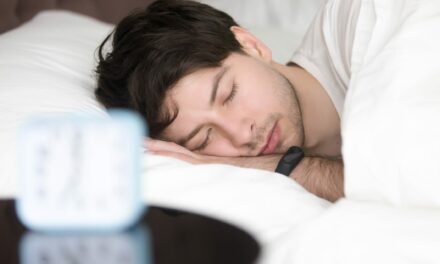Public health and safety would benefit from eliminating daylight saving time, according to a new position statement from the American Academy of Sleep Medicine (AASM).
The AASM supports a switch to permanent standard time, explaining in the statement that standard time more closely aligns with the daily rhythms of the body’s internal clock. The position statement also cites evidence of increased risks of motor vehicle accidents, cardiovascular events, and mood disturbances following the annual “spring forward” to daylight saving time.
“Permanent, year-round standard time is the best choice to most closely match our circadian sleep-wake cycle,” says lead author M. Adeel Rishi, MD, a pulmonology, sleep medicine and critical care specialist at the Mayo Clinic in Eau Claire, Wisc, and vice chair of the AASM Public Safety Committee, in a release. “Daylight saving time results in more darkness in the morning and more light in the evening, disrupting the body’s natural rhythm.”
The position statement, published online as an accepted paper in the Journal of Clinical Sleep Medicine, outlines the acute effects of daylight saving time, which range from increased risk of stroke and hospital admissions to sleep loss and increased production of inflammatory markers, one of the body’s responses to stress. In addition, studies show that traffic fatalities have increased as much as 6% in the first few days following the change to daylight saving time, and a recently published research abstract found an 18% increase in adverse medical events related to human error in the week after switching to daylight saving time.
“There is ample evidence of the negative, short-term consequences of the annual change to daylight saving time in the spring,” says AASM president Kannan Ramar, MBBS, MD, in a release. “Because the adoption of permanent standard time would be beneficial for public health and safety, the AASM will be advocating at the federal level for this legislative change.”
In July, an AASM survey of more than 2,000 US adults found that 63% support the elimination of seasonal time changes in favor of a national, fixed, year-round time, and 11% oppose it. Additionally, a 2019 survey by the AASM found that 55% of adults feel extremely or somewhat tired after the spring change to daylight saving time.
The AASM position statement on daylight saving time has been endorsed by the following organizations:
- American Academy of Cardiovascular Sleep Medicine
- American Academy of Dental Sleep Medicine
- American College of Chest Physicians (CHEST)
- American College of Occupational and Environmental Medicine
- California Sleep Society
- Dakotas Sleep Society
- Kentucky Sleep Society
- Maryland Sleep Society
- Michigan Academy of Sleep Medicine
- Missouri Sleep Society
- National PTA
- National Safety Council
- Society for Research on Biological Rhythms
- Society of Anesthesia and Sleep Medicine
- Society of Behavioral Sleep Medicine
- Southern Sleep Society
- Start School Later
- Tennessee Sleep Society
- Wisconsin Sleep Society
- World Sleep Society.
Photo 102757034 © Romans Klevcovs – Dreamstime.com




Please keep standard time all year round.